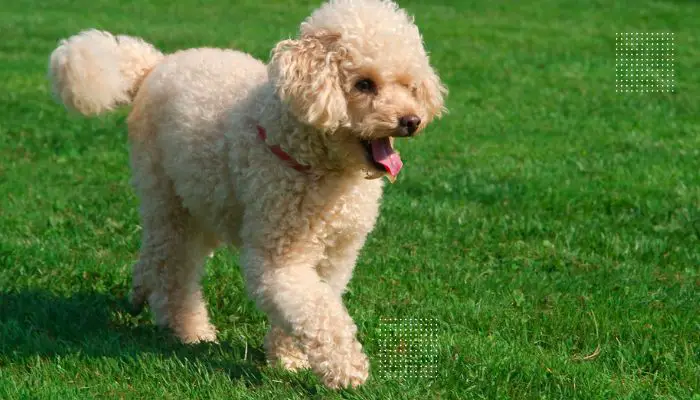Poodles, like all dogs, can sometimes drool. However, poodles are generally not known to be heavy droolers like some other breeds, such as the Bloodhound or Saint Bernard. It is possible that a poodle may drool more if it is sick or in pain, or if it is exposed to something that is particularly enticing or stimulating to the dog, such as the smell of food.
If your poodle is drooling more than usual, it is always a good idea to consult with your veterinarian to rule out any underlying medical issues.

Why is my poodle drooling so much?
There could be a variety of reasons why your poodle is drooling more than usual. Some possible causes of excessive drooling in dogs include:
Dental problems: If your poodle has dental issues such as tooth decay or gum disease, it may drool more due to discomfort or pain.
Nausea or illness: Dogs may drool more if they are feeling nauseous or are experiencing an illness that is causing them to produce more saliva.
Foreign objects: If your poodle has ingested a foreign object that is stuck in its mouth or throat, it may drool excessively as it tries to remove the object.
Heatstroke: Dogs may drool more when they are overheated, as their bodies try to cool themselves down by producing more saliva.
If your poodle is drooling excessively, it is important to consult with your veterinarian to determine the cause and receive appropriate treatment.
When should I worry about my dog drooling?
While it is normal for dogs to drool to some extent, excessive drooling can be a cause for concern. Here are some situations in which you should be particularly vigilant about your dog’s drooling:
If your dog is drooling more than usual: If your dog’s drooling habits have changed significantly and it is drooling much more than it normally does, it is important to pay attention and potentially seek veterinary care.
If your dog is drooling and showing other signs of illness: If your dog is drooling and also exhibiting other signs of illness, such as vomiting, diarrhea, loss of appetite, or lethargy, it is important to consult with your veterinarian as soon as possible.
If your dog is drooling and showing signs of pain: If your dog is drooling and also showing signs of pain, such as crying out, whimpering, or holding its head or mouth at an unusual angle, it is important to seek veterinary care as soon as possible.
If your dog is drooling and has ingested a foreign object: If your dog has ingested a foreign object, such as a toy or piece of food, and is drooling excessively, it is important to seek veterinary care immediately, as the object may be stuck in the dog’s throat or digestive system.
Overall, it is always a good idea to pay attention to your dog’s drooling habits and to consult with your veterinarian if you have any concerns.
What should I do if my dog is drooling excessively?
If your dog is drooling excessively, there are a few steps you can take to help determine the cause and provide appropriate care:
Observe your dog’s behavior: Pay attention to your dog’s behavior and try to determine if it is showing any other signs of illness or discomfort, such as vomiting, diarrhea, loss of appetite, or lethargy.
Check your dog’s mouth and teeth: Look in your dog’s mouth and check its teeth for any signs of dental problems, such as tooth decay or gum disease.
Check for foreign objects: Check your dog’s mouth and surroundings for any foreign objects that it may have ingested, such as toys or pieces of food.
Keep your dog hydrated: If your dog is drooling excessively and it is not showing other signs of illness, it is important to make sure that it is getting enough water to drink.
Consult with your veterinarian: If you are unable to determine the cause of your dog’s excessive drooling or if your dog is showing other signs of illness, it is important to consult with your veterinarian as soon as possible. Your veterinarian will be able to examine your dog and provide appropriate treatment.
Overall, it is always a good idea to pay attention to your dog’s drooling habits and to consult with your veterinarian if you have any concerns.

